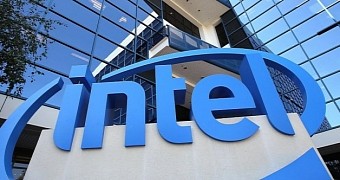The press generally holds Intel in high regard, and it has all the reasons to do so. The American giant has billions of dollars in profit each quarter while its products get mostly stellar reviews.
However, while AMD fights against poor internal management and mediocre product reviews, Intel struggles itself against the primal forces of international market trends that forgive no one.
Recently present at Citi Global Technology Conference, the head of Intel's Client Computing Group, Kirk Skaugen talked about a couple of points that currently affect Intel's business both in the U.S. and worldwide.
According to him, Intel's push to 2-in-1 tablets has mostly been successful and he believes that the 2-in-1 market segment can help Intel get a foothold in mobile computing except laptops. Apparently, notebooks have been declining severely in North American retail and have seen year-over-year declines for six straight quarters.
However, Skaugen also pointed out that most people who bought 2-in-1s also thought about buying standard tablets instead, which did not contain Intel CPUs. So, in short, it would be to Intel's benefit to convince clients into buying 2-in-1 solutions, which are sensibly more expensive than standard tablets but arrive with considerably more processing power.
However, Intel's main focus still remains PCs, and although the general sales are at an all-time low, Intel's profit margins remain flat with little hope of growing back up in the near future.
It's not bad management that drags Intel down but an international markets Zeitgeist
Another major issue for Intel is the drop in PC sales worldwide, with strong markets like Brazil, Russia and Japan being the hardest affected, Intel losing 20% to 40% market share in these countries. Russia, a traditional market for Intel, is currently hit hard by Western sanctions, and as a result, the American company feels the recoil effect of those sanctions as well.
Skaugen, however, remains positive about these issues, saying that those markets "will come back at some point" when PC sales start ramping up.
During the conference, the subject of ARM's SoCs also came up and Kirk Skaugen also talked about how Intel sees the British company as a direct competitor in key markets, like entry-level notebooks.
He apparently isn't worried at all about ARM's progress in the computing markets, but rather about Intel's old challenger AMD, who still has a small but visible presence in laptops and PCs.
In the end, it's pretty clear that Intel's situation isn't rosy at all, and while it's at the top of their game in the PC market, they are constantly outplayed in tablets and mobile solutions by other companies like Qualcomm and Apple, so in other words, if they don't manage to grow in mobile markets they are capped, with very little headroom to grow anymore in its traditional market segments.

 14 DAY TRIAL //
14 DAY TRIAL //